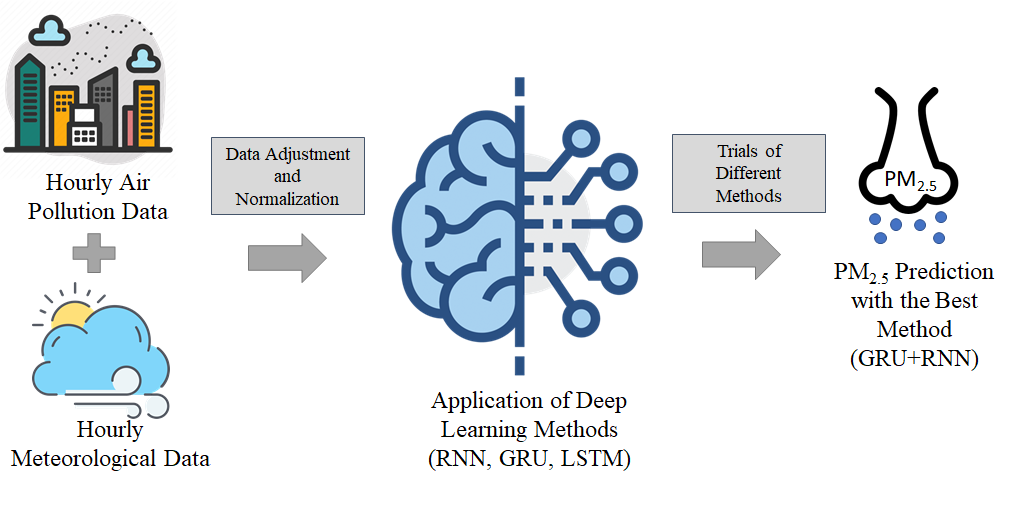
Particulate matter (PM), classified according to aerodynamic diameter, is one of the harmful pollutants causing health damaging effects. It is considered as cancerogenic by the World Health Organization (WHO) because of the substances found in the chemical composition of PM. In this study, short-term prediction of PM2.5 pollution at 1, 2 and 3 hours was modelled using deep learning methods. Three deep learning algorithms and the combination thereof were evaluated: Long-short term memory units (LSTM), recurrent neural networks (RNN) and gated recurrent unit (GRU). Air Quality Monitoring Stations of the Ministry of Environment and Urbanization of Turkey were utilized to obtain the data. Specifically, meteorological and air pollution data were obtained from a monitoring station located in Keçiören District of Ankara. Several trials were conducted using different combinations of RNN, GRU and LSTM models. Pollutant concentrations and meteorological factors were integrated into the model as input parameters to predict PM2.5 concentration for 1,2 and 3 hours. Best results with R2 of 0.83, 0.7 and 0.63 for 1-, 2-, and 3-hour predictions, respectively, were obtained by using a combination of GRU and RNN models. The results of this study are promising for explaining the effect of different deep learning models on prediction performance.
Total file downloads: 21